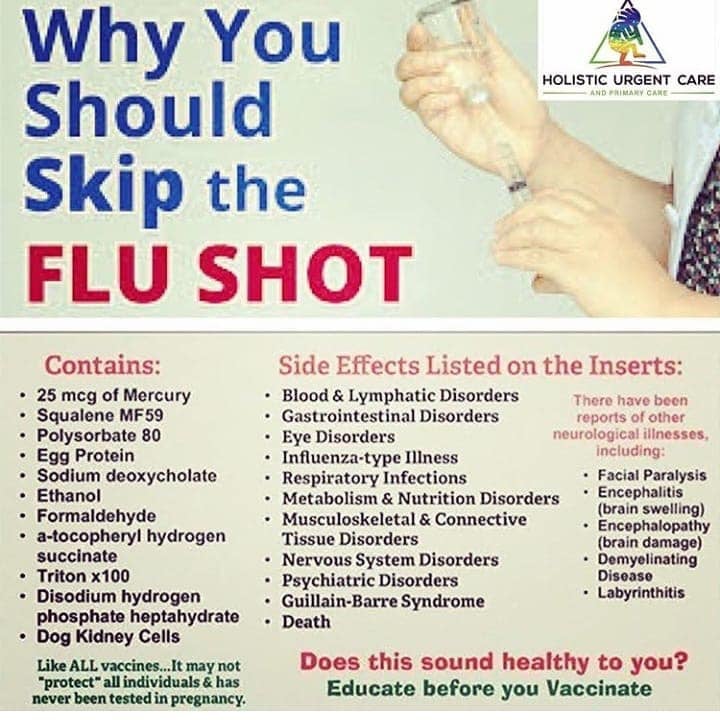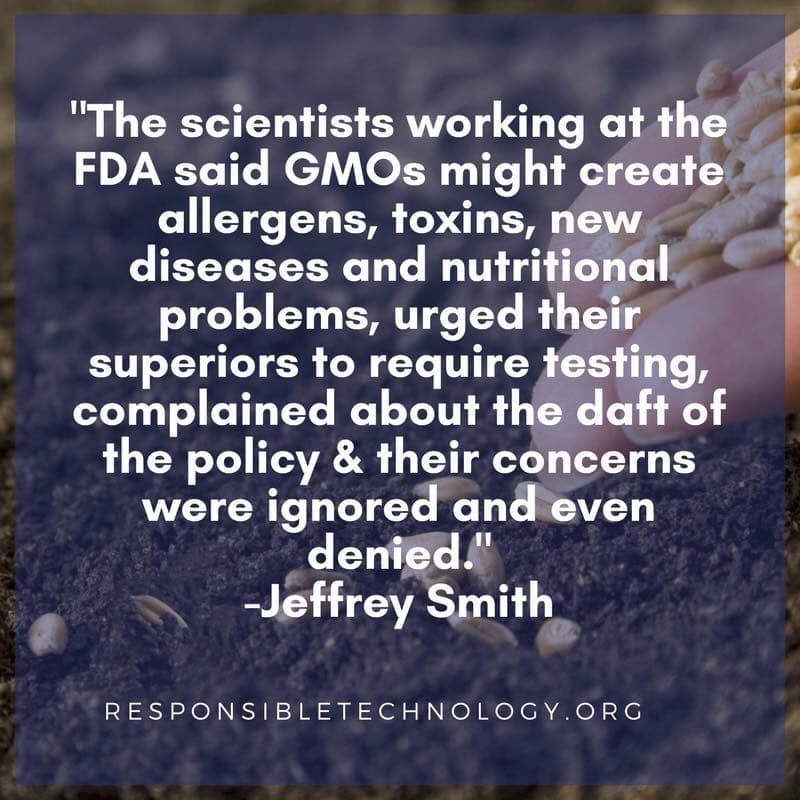
FDA GMO Corruption


Tom's Blog on Life and Livingness

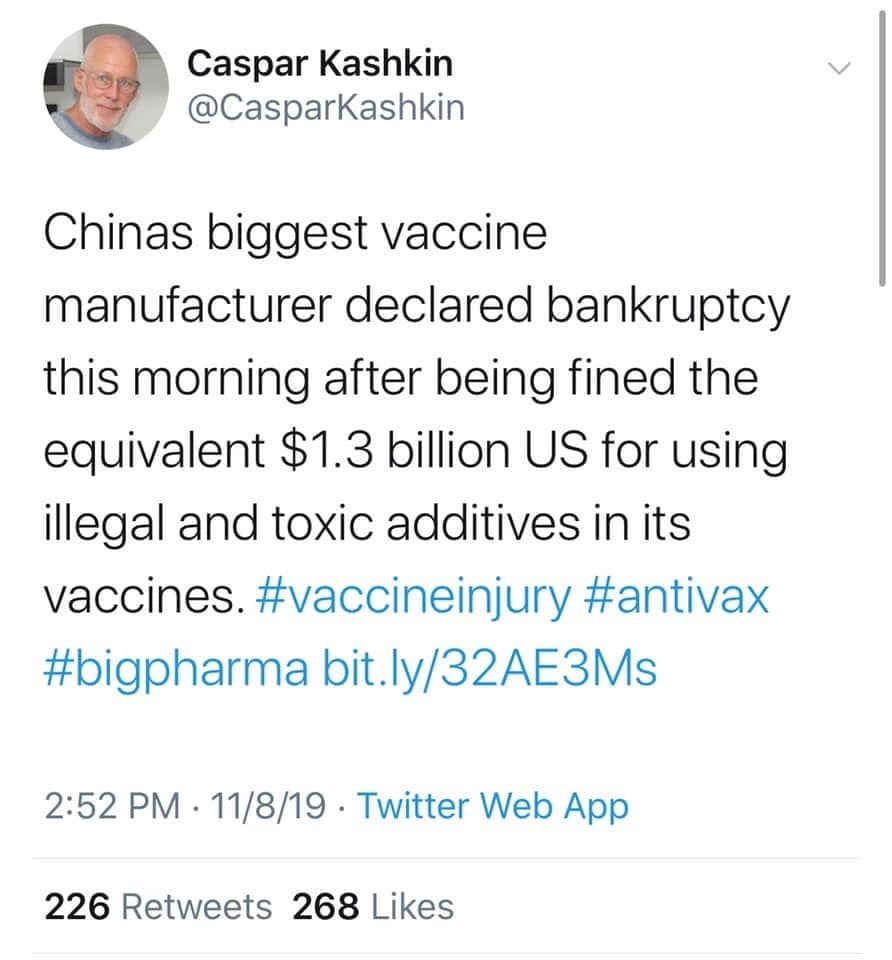
Changchun Changsheng Life Sciences Limited, a Chinese company involved in a defective vaccine case, was handed a bankruptcy ruling by a court in northeast China, according to an announcement released Friday by the Shenzhen Stock Exchange.
The Intermediate People’s Court of Changchun, capital of Jilin Province, ruled that Changchun Changsheng is insolvent and unable to pay its debts when they are due. Meanwhile, there is no possibility of reorganization, the announcement said.
Changchun Changsheng Life Sciences is a subsidiary of Changsheng Bio-technology, a major Chinese vaccine maker.
Last year, authorities revoked their pharmaceutical production license and imposed a fine of more than 9.1 billion yuan (about 1.3 billion U.S. dollars) on Changchun Changsheng for illegal production of vaccines.

On 7 April 2019, the Minister for Health (the Hon Greg Hunt) announced new 2019-20 review updates of 16 natural therapies. This was the result of 13,324 people writing to the Minister via the Your Health Your Choice campaign in Feb-Mar 2019 protesting removal of Private Health Insurance rebates for natural therapies from 1 April 2019.
There are promising signs that the Government has taken heed of public pressure and taken steps towards ensuring that the 2019-20 reviews are conducted more transparently and ethically than their 2014-15 counterparts, which were designed with the intent to remove health fund rebates for natural therapies.
Appointment of Expert Advisory Panel and Working Committee:
The Government has formed a Natural Therapies Review Advisory Panel (NTREAP) to advise the Chief Medical Officer on the new reviews, which includes a balanced mix of complementary medicine subject/ research experts. Membership of the NTREAP and its terms of reference can be viewed here.
To oversee the actual review work, the Government has again put the National Health & Medical Research Council (NHMRC) in charge of this task, despite concerns over bias and impropriety in its execution of the 2014-15 reviews, alongside an ongoing Commonwealth Ombudsman misconduct investigation.
However, an encouraging sign is that the NHMRC has appointed a Natural Therapies Working Committee to oversee the reviews that contains a solid mix of complementary medicine research experts. This has been influenced by public pressure mounted on the Government by campaigns such as Your Health Your Choice, which have drawn the public’s attention to serious deficiencies of the previous 2014-15 reviews, including the absence of any CM research experts on the previous ‘expert’ committee.
Membership of the NHMRC committee includes the Director of the National Institute of Complementary Medicine (NICM), Professor Alan Bensoussan, as well as NICM researcher Professor Jennifer Hunter who is the Chair of the Committee.
Professor Stephen Myers, who conducted a world-first systematic scoping study on Naturopathy published earlier this year, has also been appointed to the NHMRC Working Committee.
A full list of the Natural Therapies Working Committee membership and terms of reference can be accessed here.
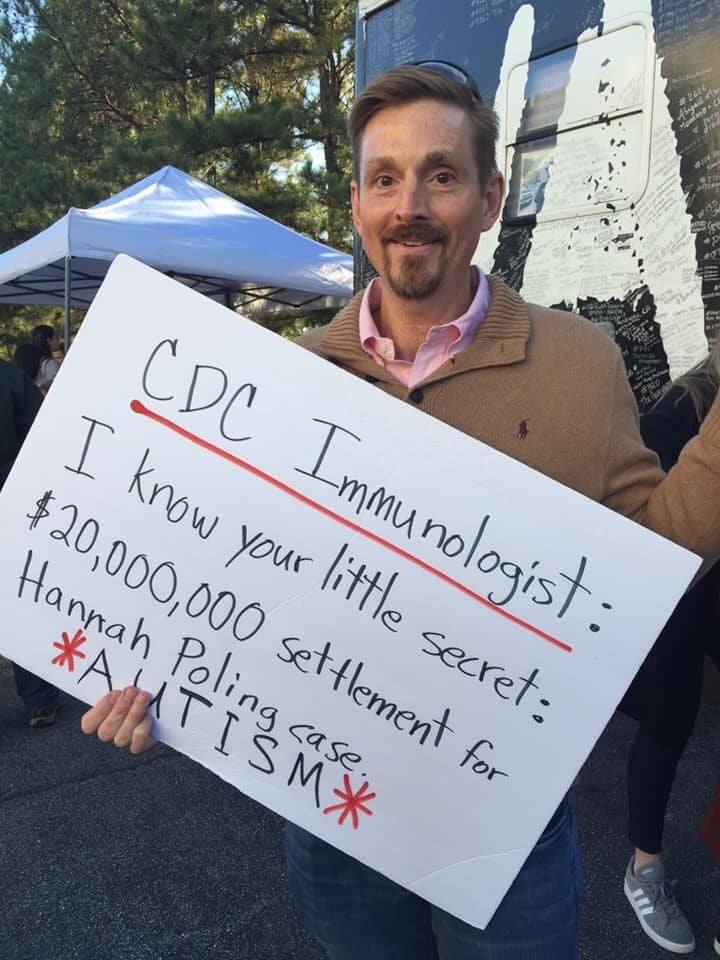

The producers of Vaxxed2 — the new vaccine truth documentary highlighted at Vaxxed2.com — joined me at the InfoWars studios for an exclusive interview about the launch of this powerful film that’s set to blow the lid on the epidemic of vaccine injuries that are killing and maiming children across America (and around the world).
The full interview, shown below via Brighteon.com, is a powerful must-see discussion about vaccines and the “war zone” of mass death they’re unleashing across America.
Children are being hospitalized, maimed and killed because of dangerous ingredients that are deliberately formulated into vaccines. And no one is allowed to talk about it.
The vaccine industry preys on children, deceives the public, aggressively hypes every outbreak (even the ones caused by vaccines) and pressures the tech giants to censor any truth about the dangers of vaccine ingredients. This is an industry dominated by a twisted combination of pure evil and mad science.
Vaxxed2 theater locations are being kept secret until 24 hours before launch
Vaxxed2 opens in theaters nationwide on November 6th. The theater locations have to be kept secret until 24 hours before the films play, due to extreme threats of violence and terrorism against the Vaxxed2 film producers. Sign up to be alerted to theater locations at Vaxxed2.com.
In mid-December, the full film will be available as a paid video on Brighteon.com.
Watch the shocking, full interview here and share everywhere:
https://www.brighteon.com/6baad468-b7d4-4c2e-bc22-30db4ec55f53
https://www.naturalnews.com/2019-10-29-vaxxed2-documentary-producers-hidden-vaccine-injuries.html

Researchers studying the effects of AMPA on the earthworm species known as Eisenia Andrei discovered that earthworms whose parents grew in contaminated soil have reduced growth, preventing them from reaching their fullest potential when it comes to enhancing the soil ecosystem.

Tamarind is one of the ingredients in my top food bars.
A study that was published in the European Journal of Clinical Nutrition showed that it can remove risky fluoride deposits from your bones. In the study, researchers discovered that healthy boys who consumed a third of an ounce of the fruit for just 18 days noted significant enhancements in their urinary excretion of fluoride. In another study, boys who were given tamarind to eat for just three weeks noted additional fluoride excretion compared to a control group.

According to a report published by The Lancet in 2014 but that has only recently gained wider attention, fluoride is a neurotoxin in the same category as mercury, lead and arsenic.
https://www.naturalnews.com/053648_water_fluoridation_neurotoxicity_brain_damage.html
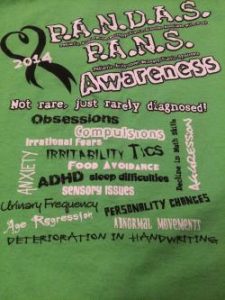
From a friend on Facebook:
“For those who have been following my daughter’s journey from vaccination to increased bacterial and viral illnesses, then AUTISM to Seizures, then a PANS diagnosis (Pediatric Acute-onset Neuropsychiatric Syndrome) to her recent diagnosis of Nonfamilial Hypogammaglobulinemia, please check out this story I need to share. Its origin is a FB post I came upon from a group that I visit. The author gave me permission to post as she truly wants other parents to know about her family’s plight, so no other family will live this horrific experience. There are almost 15,000 members of this group and we are all parents of PANS/PANDAS kids. The reality is that PANS is NOT a rare diagnosis and it is NOT JUST PEDIATRIC. It also seems that the cute PANDAS label has not helped in the urgency of this disorder – as the researchers and doctors at a recent conference were stressing this change to PANS/PANDAS – now referred to as autoimmune encephalitis.”
